
Many professions – including doctors, lawyers and teachers – have a code of conduct to ensure fair practice and accountability. For example, doctors have a Hippocratic oath. Perhaps marine conservation should have one too?
As marine conservation ramps up around the globe to achieve UN sustainable development goal (SDG) 14 – conserve and sustainably use the oceans, seas and marine resources – there is a risk that some actions taken that will undermine the rights and needs of local people. Past conservation efforts have led to the displacement and marine protected areas have been called a form of “ocean grabbing”.
We are concerned that there is no broadly applicable and comprehensive set of social standards to guide how marine conservation actions should be taken, so we recently published a paper in the journal Marine Policy about developing a code of conduct, or Hippocratic oath, for marine conservation.
We believe this is “warranted, urgent and past due”. A code of conduct addresses a critical gap in the implementation of the SDG 14 by defining a socially just foundation for marine conservation.
Marine conservation is not just about saving oceans and charismatic species. It is also about safeguarding the resources of people who rely on the sea and live in coastal communities. Around 44% of the world’s population live within 150km of the coast and three out of every seven people depend on seafood as their main source of protein. While no specific figure exists, 50 of the 51m fisheries worldwide are thought to be small scale and community-based. Yet there has not been adequate consideration, or inclusion, of the rights of small-scale fishers in national, regional or international decision-making related to marine conservation.

We need a coordinated effort to implement marine conservation solutions for our shared future and common humanity. A code of conduct would provide a clearly articulated and comprehensive set of social standards to guide our actions and ensure they are socially and environmentally effective. Such a document would provide explicit guidance to policymakers, practitioners, governments, scientists and stakeholders on how to undertake actions towards SDG 14.
The objectives would be to promote fair governance and decision-making, support social justice and promote transparency and accountability in our actions. This includes principles of human rights, indigenous rights and food security. This will ensure that marine conservation is done in a fair way and that local people are supported. This in turn will improve the long-term effectiveness of actions taken towards SDG 14, thus protecting the marine ecosystems that are fundamental for securing the wellbeing of coastal communities and universal human rights.
This approach reflects the interdependence of the global goals. Achieving the 2030 agenda means embracing the interrelatedness of the goals and how we can achieve them together. Here the Hippocratic oath can help too. An effective and inclusive approach towards goal 14 will also help us reduce poverty (goal one), move towards ending hunger (goal two), promote good health and wellbeing (goal three), tackle inequality (goal 10), achieve gender equality (goal five), take urgent action to combat climate change (goal 13), and promote peaceful and inclusive societies for sustainable development (goal 16). This code of conduct is a forward-facing, transformative opportunity to drive progress towards achieving our global goals and the world we want.
Taking action to protect the health of our oceans is a matter of urgency. However, the need to ensure that marine conservation actions are socially just and effectively implemented cannot be understated. Not only will this Hippocratic oath help us protect the oceans, it will also help us secure food and livelihoods for billions of people around the world.
Rebecca Jarvis is a postdoctoral research fellow at Auckland University of Technology and honorary research fellow at Sydney Institute of Marine Science. Nathan Bennett is postdoctoral fellow at the University of Washington, University of British Columbia and Stanford University.
Source



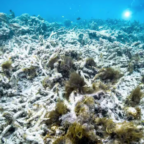

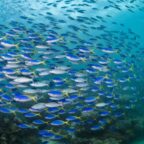

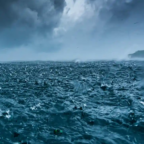
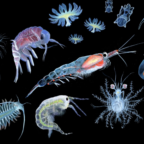


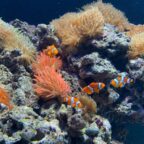



Social Profiles